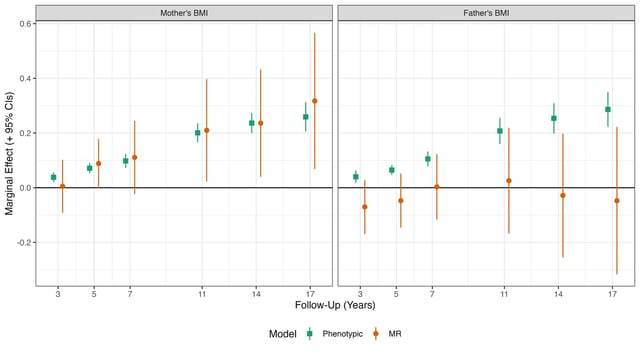Overview
- The PLOS Genetics study analyzed genetic and health information from 2,621 UK mother–father–child trios, tracking BMI and diet at six key stages between ages three and 17.
- Inherited obesity-related genes explained the majority of parent-child BMI correlations, highlighting the strong hereditary basis of familial obesity.
- Noninherited maternal genes exerted a measurable environmental influence on adolescent BMI but showed minimal impact during early childhood.
- Paternal influence on offspring weight was limited to directly inherited genes, with no significant indirect effects detected.
- Researchers recommend interventions focused on maternal health during pregnancy and adolescence to help curb childhood obesity, as 27 percent of UK children aged two to 15 are overweight or obese.
